Plant breeding is an important element of the progress made by global agriculture – world population would not be what it is today without this genetic improvement.
Breeding was based on the centuries-old tradition of crossing the best with the best and hoping for even better. The principle hasn’t changed much but technology has helped.
Over the past three decades, we have seen the use of transgenic tools to deliver new traits – GMOs. This was not really allowed in the EU, but elements of the technology (gene markers) helped to identify specific target genes to speed up the evaluation process in conventional breeding.
In more recent times, gene-editing tools have been developed, which merely activate or deactivate a tiny piece of the genetic coding so nothing is added or taken away from the DNA. This is referred to as CRISPR-Cas technology.
This precision technology is not yet allowed in the EU but there is a growing acknowledgement of its potential and, indeed, its necessity if pesticide and fertiliser use are to be reduced.
While this is still some time away, conventional plant breeding continues to deliver new traits in new varieties. These have been on display at various events in recent weeks an reported on here.
Many new traits
The evolution of BYDV tolerance is also referenced in this Focus and this is becoming increasingly sophisticated. Full resistance is also being developed. While the trait is currently mainly in winter barley, it will be extended to all crops in time.
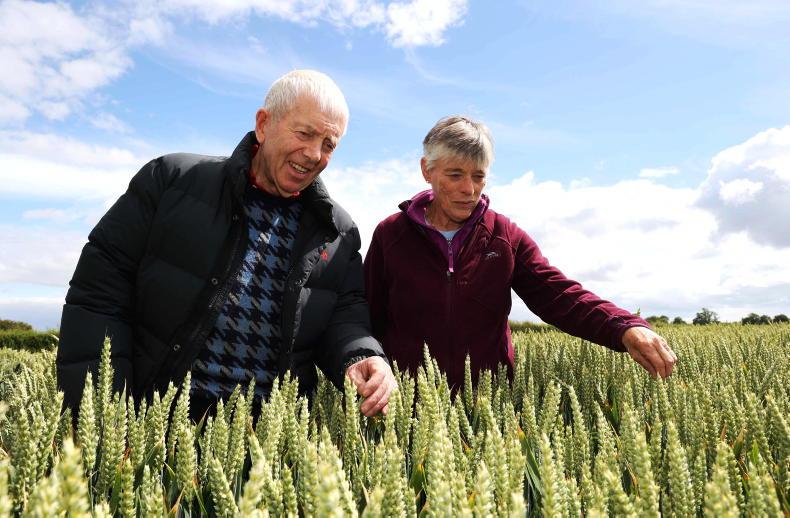
Eddie and Margaret Fitzpatrick, tillage farmers from Stradbally, Co Laois, examine winter wheat at the Irish Seed Trade Association open day in Backweston. \ Damien Eagers
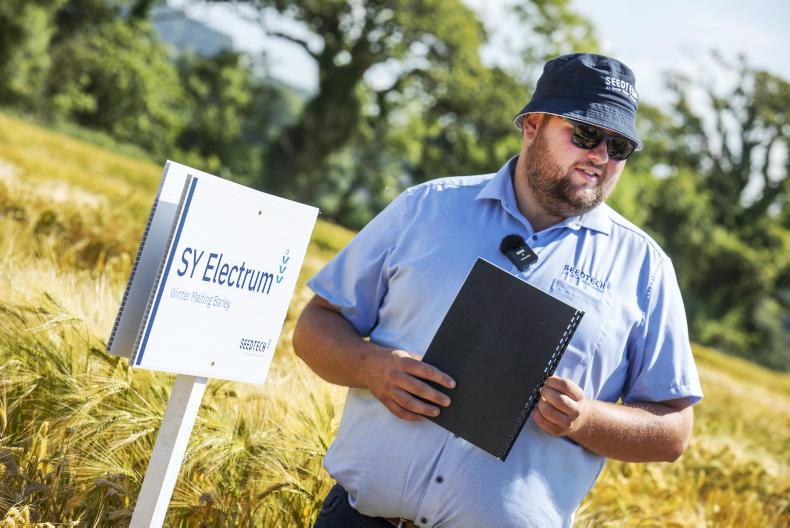
Denis Dunne, Seedtech trials manager. \ Finbarr O’Rourke
Improved mildew resistance in oat varieties is now available. Pod shatter resistance in oilseed rape has been there for some time, along with resistance to light leaf spot, phoma and turnip yellows virus. And we may see N-Flex and clean stem technologies introduced shortly in that crop.
We also see new and improved traits for the brewing and distilling sectors.
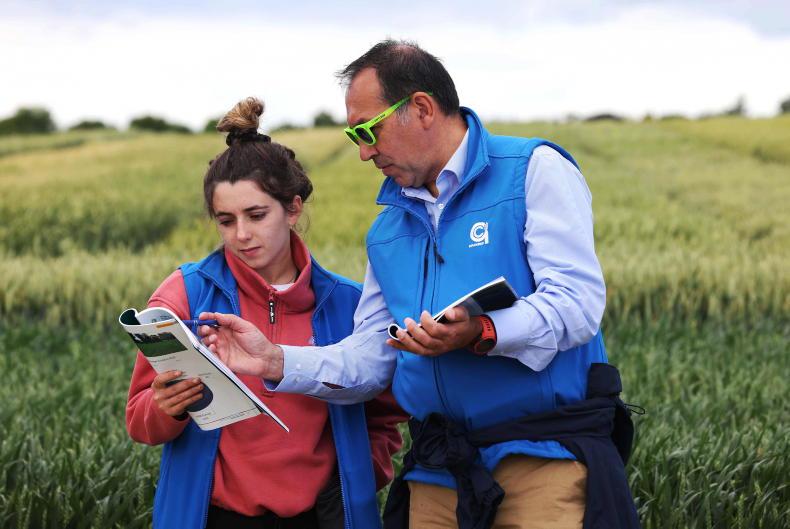
Barry Murray and Fiona Beamish, Goldcrop, at the Irish Seed Trade Association open day in Backweston. \ Damien Eagers
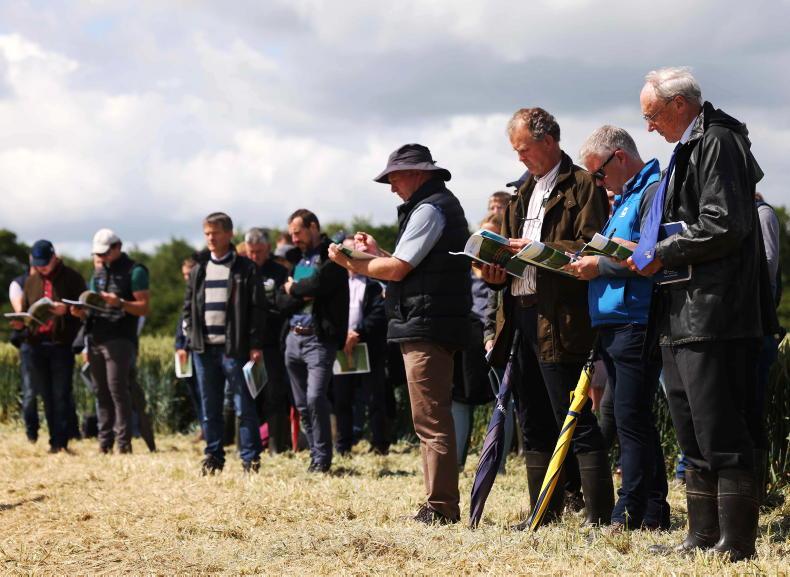
Attendees take notes at the Irish Seed Trade Association open day on Backweston Farm. / Damien Eagers
New traits continue to be developed but if they are not perceived to be commercially rewarding, the development may cease.
The same applies for gene-edited traits.
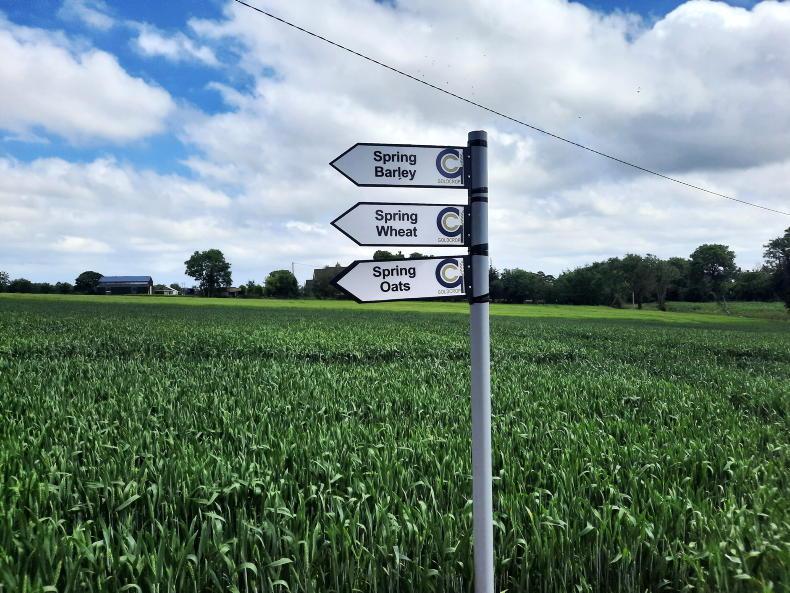
Goldcrop open day, Dunleer, June 2022.
The industry must now begin to consider financial models that will encourage the development of genetic solutions while being robust enough to be attractive when multiple traits are delivered through a single variety.
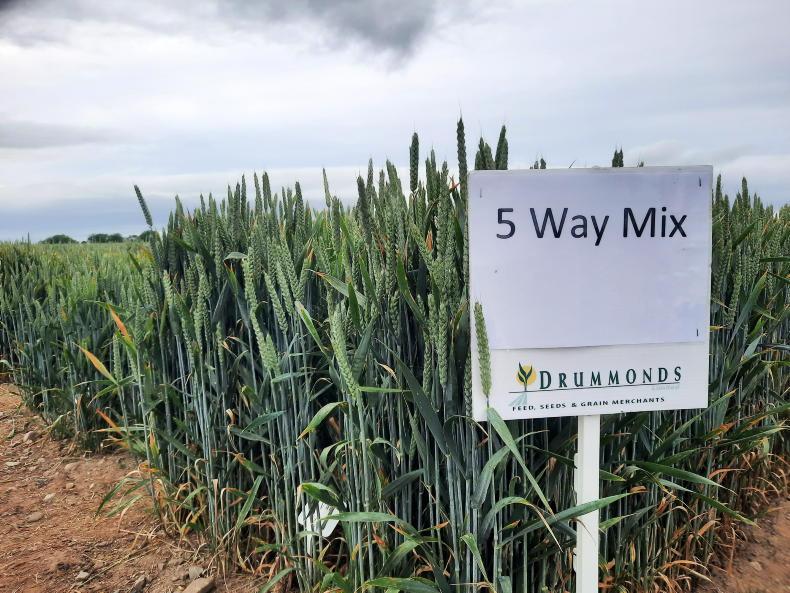
Drummonds' five-way wheat mix.
Plant breeding is an important element of the progress made by global agriculture – world population would not be what it is today without this genetic improvement.
Breeding was based on the centuries-old tradition of crossing the best with the best and hoping for even better. The principle hasn’t changed much but technology has helped.
Over the past three decades, we have seen the use of transgenic tools to deliver new traits – GMOs. This was not really allowed in the EU, but elements of the technology (gene markers) helped to identify specific target genes to speed up the evaluation process in conventional breeding.
In more recent times, gene-editing tools have been developed, which merely activate or deactivate a tiny piece of the genetic coding so nothing is added or taken away from the DNA. This is referred to as CRISPR-Cas technology.
This precision technology is not yet allowed in the EU but there is a growing acknowledgement of its potential and, indeed, its necessity if pesticide and fertiliser use are to be reduced.
While this is still some time away, conventional plant breeding continues to deliver new traits in new varieties. These have been on display at various events in recent weeks an reported on here.
Many new traits
The evolution of BYDV tolerance is also referenced in this Focus and this is becoming increasingly sophisticated. Full resistance is also being developed. While the trait is currently mainly in winter barley, it will be extended to all crops in time.

Eddie and Margaret Fitzpatrick, tillage farmers from Stradbally, Co Laois, examine winter wheat at the Irish Seed Trade Association open day in Backweston. \ Damien Eagers

Denis Dunne, Seedtech trials manager. \ Finbarr O’Rourke
Improved mildew resistance in oat varieties is now available. Pod shatter resistance in oilseed rape has been there for some time, along with resistance to light leaf spot, phoma and turnip yellows virus. And we may see N-Flex and clean stem technologies introduced shortly in that crop.
We also see new and improved traits for the brewing and distilling sectors.

Barry Murray and Fiona Beamish, Goldcrop, at the Irish Seed Trade Association open day in Backweston. \ Damien Eagers

Attendees take notes at the Irish Seed Trade Association open day on Backweston Farm. / Damien Eagers
New traits continue to be developed but if they are not perceived to be commercially rewarding, the development may cease.
The same applies for gene-edited traits.

Goldcrop open day, Dunleer, June 2022.
The industry must now begin to consider financial models that will encourage the development of genetic solutions while being robust enough to be attractive when multiple traits are delivered through a single variety.

Drummonds' five-way wheat mix.











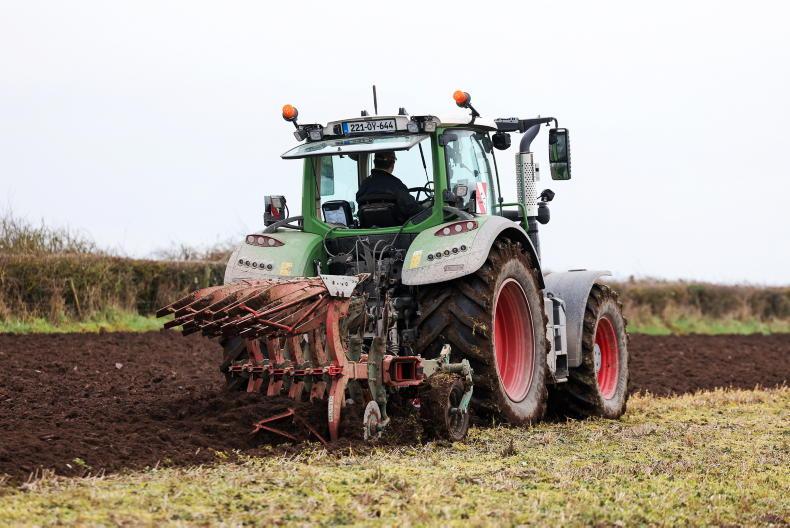

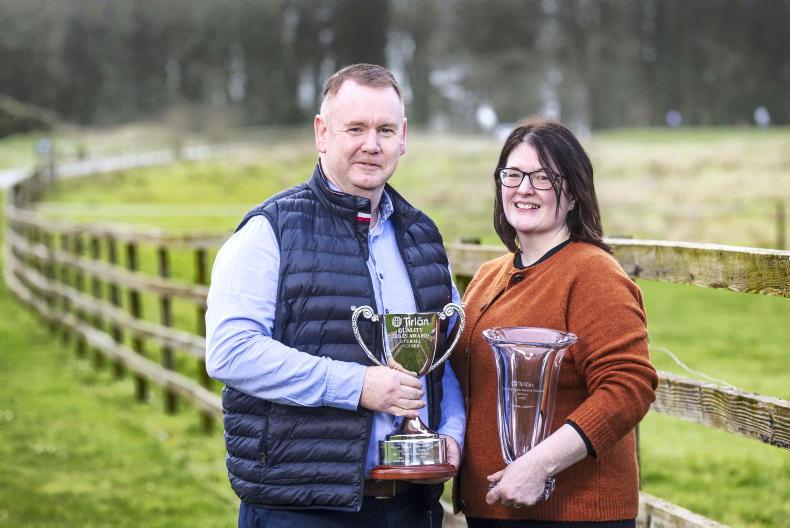

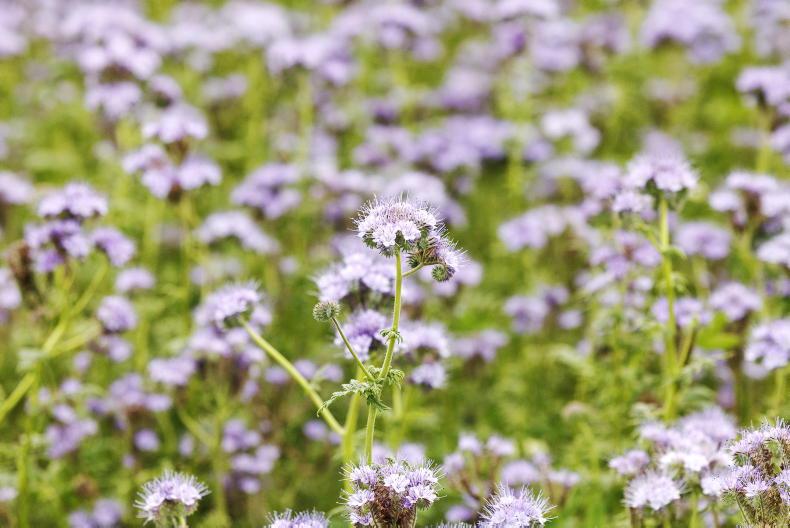
SHARING OPTIONS